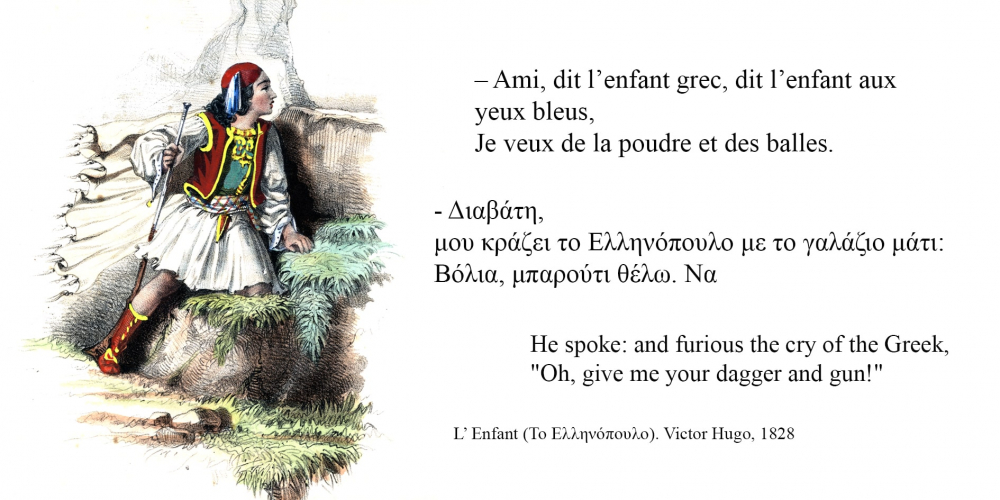Victor Hugo approached the philhellenic movement relatively late, but was one of the most consistent supporters of the Greek cause. His first Greek poem "Heads of the Seraglio" (Les Têtes du sérail) was published in the Journal des Débats on June 3, 1826, less than a month after the Exodus of Messolonghi.
In 1827 he composed the poems "Navarin" and "Enthousiasme" and the following year "Canaris" , "Lazzara" and the famous "L'enfant" , which refers to the Chios massacre of 1822. All the above poems feature in his collection Les Orientales (1829). Hugo's interest in Greece did not stop after the establishment of the Greek state. During the Great Cretan Revolution of 1866 - 1869 he wrote letters in which he strongly supported the Cretan struggle and they were published in the European press.
In 1824 Victor Hugo, at the age of 22, noted on the occasion of Lord Byron's death in Messolonghi: "He (Byron) has proved to Europe that the poets of the new school, although they no longer adore the gods of pagan Greece, always admire its heroes and that, if they have deserted Olympus, they have at least never said adieu to Thermopylae.







